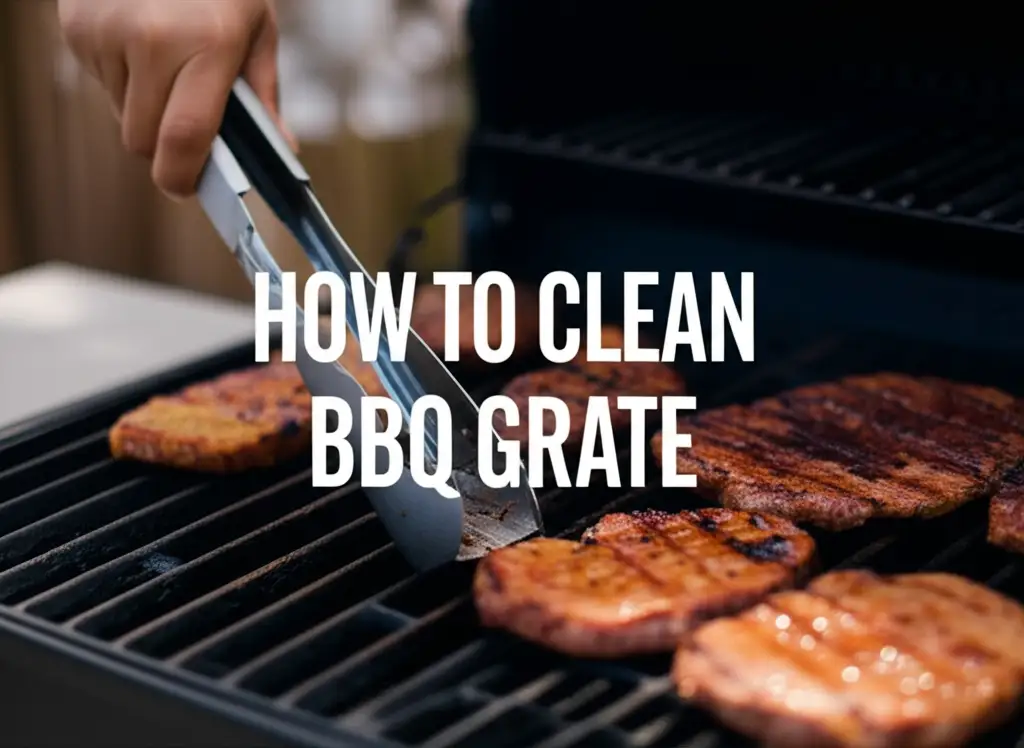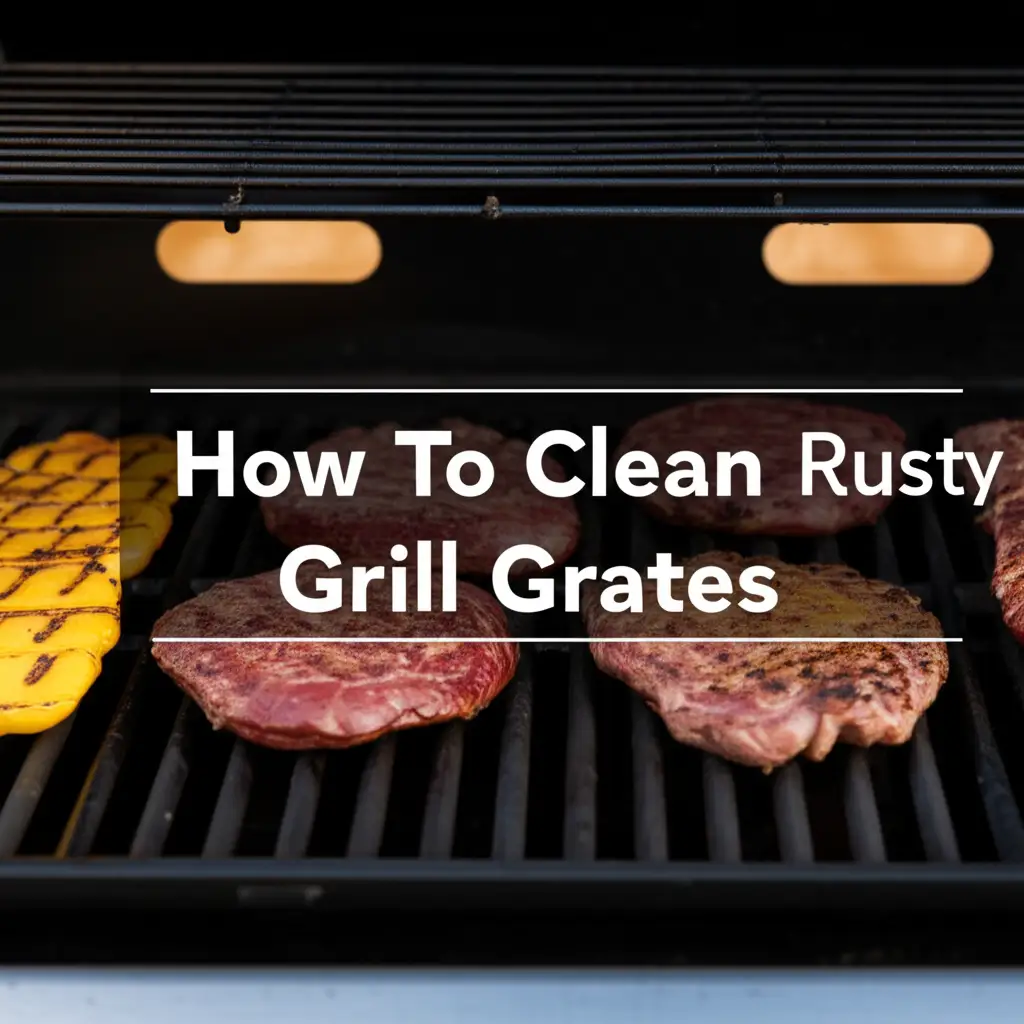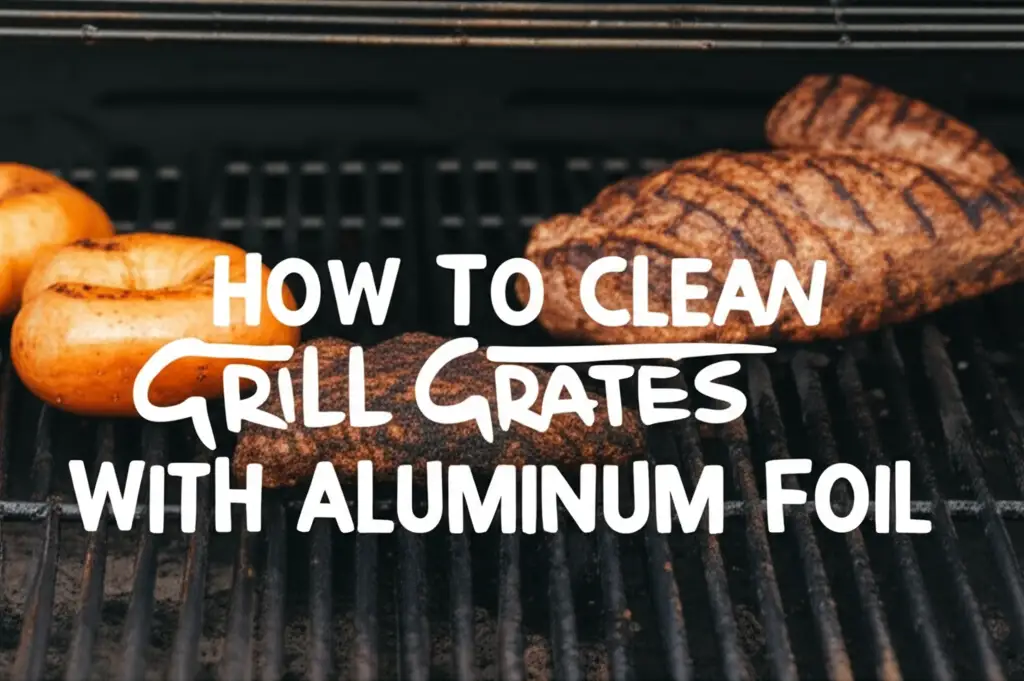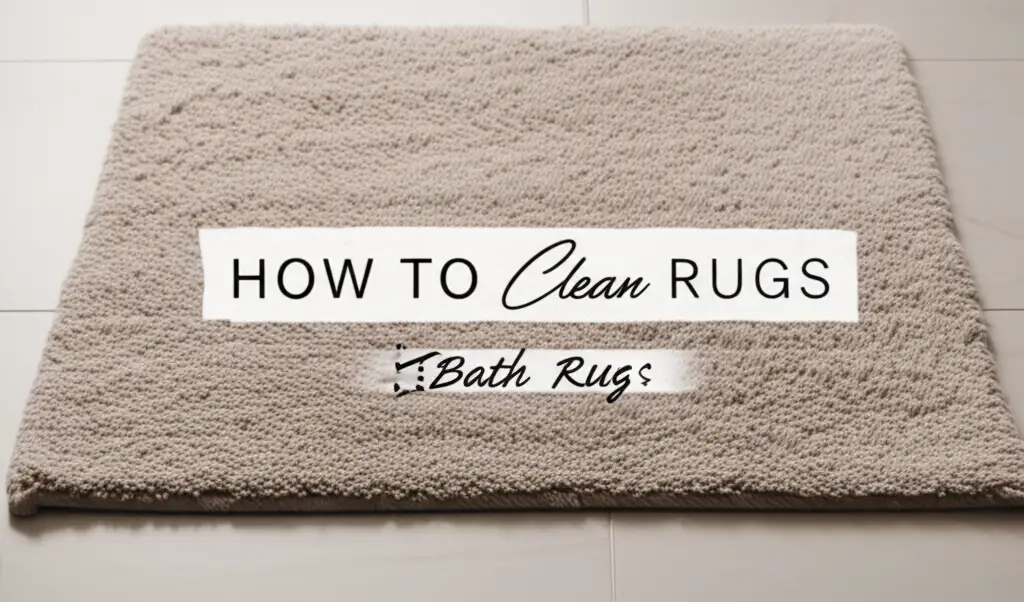· Home Cleaning · 19 min read
How To Clean Bbq Grate

Mastering BBQ Grate Cleaning: Your Guide to a Spotless Grill
Imagine this: You are ready for a perfect backyard barbecue. The sun is shining, and the food is ready to hit the grill. Then you look at your BBQ grate. It is covered in old food bits and grime. A dirty grill grate can ruin your cooking experience. It can also make your food taste bad. Knowing how to clean BBQ grate parts is key to a great meal. A clean grate cooks food evenly. It also prevents food from sticking. This guide will show you simple steps to clean your grill. We will cover tools, methods, and maintenance tips. Your grill will be ready for delicious meals.
Takeaway
Keeping your BBQ grate clean is simple. Here are the key steps:
- Scrape after each use: Remove loose food while the grate is warm.
- Use appropriate tools: A stiff-bristled brush or scraper works best.
- Deep clean regularly: Soak grates in warm, soapy water or use natural cleaners.
- Protect your grates: Oil them after cleaning to prevent rust.
- Match cleaning to material: Different grates need specific care.
To clean a BBQ grate, first heat the grill to loosen debris. Use a stiff grill brush to scrape off burnt-on food. For deep cleaning, remove the grates and soak them in hot, soapy water. Scrub thoroughly with a sponge or steel wool, rinse, and dry completely to prevent rust.
Why Keeping Your BBQ Grate Clean Matters
A clean BBQ grate does more than just look good. It plays a big part in how your food tastes. It also affects how safe your cooking is. Old food bits can burn and make new food taste charred. These burnt pieces can also stick to your fresh food. This is not what anyone wants.
A dirty grate can also harbor bacteria. This means old food can grow mold or germs. When you cook on a dirty surface, these germs can transfer to your meal. This can make people sick. You must remove these health risks.
Cleaning your grate also helps it last longer. Rust and grime can damage the metal. This makes the grate weak over time. Regular cleaning prevents this wear and tear. It keeps your grill in top shape for many years. A clean grill is a happy grill.
Think of your BBQ grate as a cooking surface. Just like a pan, it needs cleaning after use. This ensures even heat distribution. Food cooks better and tastes amazing. It also shows you care about your cooking and your guests. A well-maintained grill is a sign of a true pitmaster.
Essential Tools and Supplies for Grate Cleaning
Having the right tools makes BBQ grate cleaning much easier. You do not need many items. But the ones you have should be effective. These tools help you remove tough grime without damaging your grate. Get them ready before you start cleaning.
First, you need a good grill brush. Choose one with stiff bristles. Stainless steel bristles work well for most grates. Nylon brushes are safer for porcelain-coated grates. Always check the brush material against your grate type. A worn-out brush will not do a good job.
Next, consider a grill scraper. Some brushes have a scraper attached. A separate scraper can also be useful. It helps dislodge large, stuck-on pieces of food. This is especially good for hard, burnt-on residue. Scrapers get into tight spots.
You will also need a bucket or a large tub. This is for soaking your grates during deep cleaning. A standard kitchen sink might not be big enough. Make sure the container can hold your grates fully submerged. This helps loosen tough grime.
Dish soap is a common cleaning agent. Use a strong degreasing dish soap. It cuts through grease and baked-on food. For natural options, white vinegar and baking soda are excellent. They are gentle but powerful cleaners. You might also want a pair of rubber gloves. They protect your hands from grease and cleaning solutions. Finally, have some old rags or paper towels ready for drying. Dry grates prevent rust.
Pre-Cleaning Steps: The Warm-Up
Before you start scrubbing, a few steps can make the job much easier. These steps help loosen the grime. They prepare the grate for a more thorough clean. Skipping these can make cleaning harder. Always start here for the best results.
First, heat your grill. Turn the burners to high for 10-15 minutes. Close the lid during this time. This extreme heat burns off much of the old food and grease. It turns stubborn residue into ash. This ash is much easier to scrape away.
Once the grill is hot, open the lid. Use your grill brush to scrape the grates. Apply firm pressure. Push the ash and loosened bits into the drip tray. Work quickly while the grates are still hot. Heat makes the residue brittle. It comes off more easily this way.
This initial scrape is vital. It removes the surface layer of grime. You will notice a lot of gunk fall off. Do this after every cook, too. It makes deep cleaning less frequent. This simple step saves you a lot of effort later.
Let the grill cool down slightly after this. It should still be warm, but safe to handle. You do not want to burn yourself. Once cool enough, remove the grates if you plan a deep clean. If not, wipe them down with a damp cloth to remove any remaining ash. This prepares the surface for seasoning.
Cleaning Methods for Different Grate Materials
BBQ grates come in different materials. Each material needs specific cleaning care. Using the wrong method can damage your grate. Knowing your grate material is the first step. This ensures effective cleaning and protects your investment.
Understanding your grate helps you choose the right brush. It also guides your choice of cleaning solutions. Some materials are more delicate. Others can handle tougher scrubbing. Always check your grill’s manual if you are unsure about the grate material.
Cleaning Cast Iron BBQ Grates
Cast iron grates are known for excellent heat retention. They create perfect sear marks. But they need special care to prevent rust. Cast iron is porous. It needs seasoning to stay non-stick. Do not use harsh soaps or steel wool often. They can strip the seasoning.
To clean cast iron grates, heat them after cooking. Use a stiff nylon brush or a plastic scraper. Avoid metal brushes if possible, as they can scratch. Scrape off food residue while the grate is warm. For tough spots, make a paste of baking soda and water. Apply it to the grime. Let it sit for 15-20 minutes. Then scrub with a non-abrasive pad.
Rinse the grate with warm water. Do not let it soak for long. Water causes rust quickly on cast iron. Dry the grate immediately and completely. You can place it back on the warm grill to air dry. After drying, apply a thin layer of cooking oil. Use a paper towel to rub it over the entire surface. This re-seasons the grate. This oil layer protects against rust. It also helps with food release for your next cook. Maintaining this seasoning is key to long-lasting cast iron grates.
Cleaning Stainless Steel BBQ Grates
Stainless steel grates are durable and common. They resist rust better than cast iron. But they can still get food stuck on them. They also show smudges and streaks easily. Proper cleaning keeps them shiny and functional.
For stainless steel, you can use a stiff wire brush. Use it while the grates are warm. Scrape off all food debris. For a deep clean, remove the grates. Soak them in a large tub with hot water and dish soap. Let them soak for at least 30 minutes, or even overnight for very dirty grates. The hot water and soap will break down grease.
After soaking, scrub the grates with a sturdy brush or a steel wool pad. You can also use a heavy-duty degreaser if needed. Make sure to scrub thoroughly to remove all residue. Rinse the grates completely with clean water. Ensure all soap is gone. Dry them immediately to prevent water spots. You can use a towel or let them air dry in the sun. Some people like to wipe them with a small amount of cooking oil afterward. This adds a layer of protection. This also helps reduce food sticking. Stainless steel is forgiving but benefits from consistent care. Keeping it clean ensures even heat and long life.
Cleaning Porcelain-Coated BBQ Grates
Porcelain-coated grates are smooth and non-stick. They are easy to clean. However, their coating can chip or crack if you use abrasive tools. Once chipped, they can rust. So, gentle cleaning is essential for these grates.
Always use a nylon brush or a soft brass brush for porcelain-coated grates. Never use a metal wire brush. This will scratch the porcelain. Scrape the grate gently after each use while it is still warm. Avoid harsh chemicals.
For deep cleaning, let the grates cool completely. Remove them from the grill. Soak them in warm water with mild dish soap. Let them soak for about an hour. This softens baked-on food. Use a soft sponge or a cloth to wipe away residue. A plastic scraper can help with stubborn spots. Gently rub in circular motions.
Rinse the grates thoroughly with clean water. Make sure all soap residue is gone. Dry them completely with a soft cloth. Do not let them air dry, as water spots can form. Do not apply oil to porcelain grates. The non-stick coating does not need it. Oiling can sometimes cause stickiness or attract dust. Regular, gentle cleaning keeps your porcelain grates in good condition for many years.
Deep Cleaning Your BBQ Grate: Beyond the Basics
Sometimes, a quick scrape is not enough. Your BBQ grate might have layers of baked-on grease. It could also have stubborn carbon deposits. This is when deep cleaning becomes necessary. Deep cleaning removes the toughest grime. It restores your grates to a near-new condition. This process takes more time but gives excellent results.
One common deep cleaning method is soaking. Remove your grates from the grill. Place them in a large bucket or a heavy-duty trash bag. Fill the container with hot water. Add a generous amount of degreasing dish soap. You can also add half a cup of baking soda for extra power. Make sure the grates are fully submerged. Let them soak overnight. This prolonged soak softens even the most stubborn residue. For a deeper clean, consider linking to how to clean sink grate, as the soaking principles are similar.
The next day, pull out the grates. Use a stiff brush or a heavy-duty sponge. The grime should now be much easier to scrub off. You might still need to apply some elbow grease. But it will be significantly less effort than scrubbing dry, cold grates. This method works well for all grate materials, as long as you use the right brush. For extremely tough baked-on issues, principles from cleaning other burnt surfaces, like how to clean burnt dryer grate, can be helpful.
Another effective deep cleaning approach uses natural cleaners. White vinegar and baking soda are powerful partners. Mix one part white vinegar with two parts baking soda to form a thick paste. Apply this paste generously to your grates. Cover all the dirty areas. Let the paste sit for several hours, or even overnight. The chemical reaction between vinegar and baking soda helps lift stubborn grime. This is similar to how vinegar is effective in how to clean glass with vinegar.
After the paste has worked its magic, scrub the grates. Use a non-abrasive sponge or a stiff brush. The grime should come off more easily. Rinse the grates thoroughly with water. Ensure no paste residue remains. Dry them completely before storing or putting them back on the grill. This natural method is safe for all grate types. It is also environmentally friendly.
For very neglected grates, a pressure washer can be an option. Use it with caution. The high pressure can damage porcelain coatings or chip paint. Keep a safe distance from the grates. Make sure to wear protective eyewear. This method is fast but requires careful handling.
Remember to always dry your grates immediately after deep cleaning. This prevents rust, especially for cast iron and stainless steel. A well-cleaned grate improves your grilling. It also keeps your food safe and delicious.
Tackling Tough Stains: Rust and Baked-On Grease
Sometimes, your BBQ grate faces more than just routine dirt. Rust spots and thick, baked-on grease are common problems. These tough stains need special attention. They cannot be removed with a simple scrape. But with the right methods, you can restore your grates.
Baked-on grease is very common. It accumulates over many cooks. It turns into a hard, black layer. One effective way to tackle this is with a strong degreaser. You can buy commercial grill cleaners. Always read the product instructions carefully. Ensure it is safe for your specific grate material. Spray the cleaner on the cold grates. Let it sit for the recommended time. Then scrub hard with a stiff brush. Rinse thoroughly afterward. For similar issues with kitchen appliances, you might find tips on how to clean bottom of oven or even how to clean bottom of pan helpful, as the principles of breaking down burnt residue are alike.
Another powerful method for baked-on grease uses ammonia. This is a strong chemical. You must use it with extreme caution and in a well-ventilated area. Place your grates in a heavy-duty trash bag. Pour about half a cup of ammonia into the bag. Seal the bag tightly. Leave it outdoors overnight. The ammonia fumes will break down the grease. The next day, open the bag carefully. Wear gloves and eye protection. Remove the grates. The grease should be soft enough to wipe or rinse off. Scrub any remaining bits with a brush. Rinse the grates very well before use. This method is effective but requires safety precautions.
Rust is another common issue, especially on cast iron grates. Small rust spots can be scrubbed off with steel wool. For heavier rust, mix white vinegar and baking soda into a thick paste. Apply this paste to the rusted areas. Let it sit for several hours. The acid in the vinegar reacts with the rust. Scrub the rust off with a wire brush or steel wool. This process might take a few attempts for severe rust.
For deeply rusted cast iron grates, you can try an oil bath. After removing as much rust as possible, immerse the grate in cooking oil. Let it sit for a few days. The oil helps to displace moisture and penetrate the rust. Then, scrub again. After removing rust from cast iron, you must re-season the grate. Apply a thin layer of cooking oil. Bake the grate in an oven at 350-400°F (175-200°C) for an hour. Let it cool. Repeat this a few times to build up a good seasoning layer. This protects against future rust. This is a crucial step for maintaining cast iron. Understanding how to maintain other cooking surfaces, such as learning how to clean baking steel, can provide similar insights into protecting metal from corrosion and buildup.
Always remember to dry your grates immediately after cleaning any rust or grease. Any moisture left behind will invite rust back. These methods will help you conquer even the toughest stains. They ensure your grill is always ready for action.
Post-Cleaning Care and Maintenance
Cleaning your BBQ grate is only half the battle. Proper post-cleaning care is just as important. It helps maintain the grate’s condition. It also extends its lifespan. Regular maintenance ensures your grill is always ready for the next cookout. This reduces the need for frequent deep cleaning.
After cleaning your grates, dry them completely. This step is critical, especially for cast iron and stainless steel. Moisture is the primary cause of rust. Use a clean towel or paper towels to wipe down every surface. For best results, place the clean grates back on the grill. Turn the burners on low for a few minutes. This evaporates any remaining moisture. It also prepares the surface for seasoning if needed.
For cast iron grates, seasoning is a must. After drying, apply a very thin layer of high-smoke-point cooking oil. Use vegetable oil, grapeseed oil, or flaxseed oil. Rub it over the entire surface of the grate with a paper towel. Wipe off any excess oil. The grate should look slightly shiny, not greasy. This oil layer creates a protective, non-stick surface. It prevents rust and improves cooking performance. Re-season your cast iron grates after every deep clean. Do it regularly if you use them often.
For stainless steel grates, a light coat of cooking oil can also be beneficial. It adds an extra layer of protection against rust and helps with food release. For porcelain-coated grates, avoid oiling. Their non-stick surface does not need it. Oiling can make them sticky or attract dust.
Store your grates properly when not in use. If your grill has a cover, use it. A cover protects the grates from rain, dust, and debris. If you remove the grates for storage, keep them in a dry place. Avoid humid areas like basements. Some people hang them in a garage or shed.
Make cleaning a habit. A quick scrape after every use while the grill is warm saves a lot of effort later. This prevents food from baking onto the surface. It stops grease from building up. This small habit makes a big difference. It keeps your grill in excellent condition. This ensures many years of great grilling. Consistent care makes your BBQ grate a joy to use.
Advanced Cleaning Techniques and Safety Tips
Sometimes, standard cleaning methods are not enough for heavily used grates. Or you might want to try less common but effective solutions. These advanced techniques can tackle extreme grime. However, they often require more safety precautions. Always prioritize your safety when working with powerful cleaners or tools.
One advanced technique involves using a steam cleaner. High-pressure steam can penetrate and loosen stubborn grime. Direct the steam nozzle at the grate. The heat and moisture will break down baked-on residue. Use a brush to scrub while the grates are still hot from the steam. This method is chemical-free. It is also quite effective. Ensure your steam cleaner is suitable for outdoor use. Always wear heat-resistant gloves.
Another powerful option is using oven cleaner for extremely dirty grates. Oven cleaner contains strong chemicals. These chemicals break down tough grease and carbon. Always apply oven cleaner to cold grates. Do this in a well-ventilated area, preferably outdoors. Wear heavy-duty rubber gloves and eye protection. Spray the grates thoroughly. Let the cleaner sit for several hours or overnight. Follow the product instructions for specific timing. After the waiting period, scrub the grates vigorously with a stiff brush. Rinse them repeatedly with plenty of water. Ensure all chemical residue is gone. This method is very effective but requires careful handling due to the harsh chemicals. It’s similar to cleaning deeply soiled cooking surfaces, like after using a self-clean oven cycle, which can sometimes leave behind residue that also requires specific cleaning, as detailed in how to clean oven after self clean.
For rust removal on cast iron, an electrolytic rust removal setup is possible. This uses electricity, a sacrificial anode, and a baking soda solution. This method is for serious rust. It requires technical knowledge and careful setup. It is very effective but not for beginners. If you choose this, research it thoroughly. Understand all safety protocols.
Safety is paramount during any cleaning process. Always wear gloves to protect your hands from grease, chemicals, and hot surfaces. Use safety glasses, especially when using strong chemicals or pressure washers. Work in a well-ventilated area. Never mix different cleaning chemicals unless the product instructions state it is safe. For example, mixing ammonia and bleach creates dangerous fumes. Always read product labels completely. Follow all warnings and instructions. Proper safety measures prevent accidents and ensure a smooth cleaning process. Your health is more important than a clean grill.
Frequently Asked Questions
How often should I clean my BBQ grate?
You should scrape your BBQ grate after every use while it is still warm. A light cleaning every 2-3 uses helps. Deep clean your grates at least once a month during grilling season. For less frequent grillers, deep clean before and after the season. This prevents stubborn buildup.
Can I clean my BBQ grate with a wire brush?
Yes, you can use a wire brush for stainless steel and cast iron grates. However, avoid wire brushes on porcelain-coated grates. They can scratch the coating. For porcelain, use a nylon or soft brass brush. Always inspect your wire brush for loose bristles.
What is the best way to deep clean rusty cast iron grates?
For rusty cast iron, make a thick paste of white vinegar and baking soda. Apply it to the rust and let it sit for several hours. Scrub with steel wool. For heavy rust, consider an oil bath soak. Always re-season cast iron grates after cleaning to prevent future rust.
Can I put my BBQ grates in the dishwasher?
Most BBQ grates are too large for dishwashers. Dishwasher detergent can also be too harsh for cast iron. It strips the seasoning. Some porcelain-coated grates might be dishwasher safe, but check your grill manual first. Hand washing or soaking is usually better.
How do I prevent food from sticking to my BBQ grate?
Keep your grates clean. Always preheat your grill to the desired temperature. Just before placing food, lightly oil the clean, hot grates. Use a paper towel dipped in high-smoke-point oil. This creates a non-stick barrier. Do not use too much oil, as it can cause flare-ups.
Are natural cleaners like vinegar and baking soda effective?
Yes, white vinegar and baking soda are very effective natural cleaners. They form a paste that helps break down grease and lift stubborn grime. They are safe for all grate types. They also pose fewer health risks than harsh chemical cleaners.
Conclusion
A clean BBQ grate is the heart of a great grilling experience. It ensures your food cooks perfectly. It also protects your health from lingering bacteria. You have learned different methods to clean your BBQ grate. This includes basic scraping to deep cleaning techniques. Remember to match your cleaning method to your grate’s material. Cast iron, stainless steel, and porcelain all need specific care.
Always use the right tools. A good grill brush and a sturdy scraper are essential. Do not forget protective gear like gloves and eyewear for tougher jobs. Regular pre-cleaning, like heating and scraping, saves you effort in the long run. Tackle tough stains like rust and baked-on grease with specific solutions. Always finish with proper post-cleaning care. Drying and seasoning are crucial steps.
By following these simple yet effective steps, you will keep your grill grates in excellent condition. This ensures many years of delicious, safe, and enjoyable backyard barbecues. So, grab your tools, get cleaning, and fire up that grill. Enjoy perfectly cooked meals every time.
- BBQ cleaning
- grill grate cleaning
- grill maintenance
- outdoor cooking
- deep cleaning grill




